The Church of Scientology Mission of Dorset: A Comprehensive Analysis
The Church of Scientology has long been a topic of fascination and controversy worldwide, and its expansion into various regions, including Dorset in the United Kingdom, adds another layer to this enigmatic religion. The Church of Scientology Mission of Dorset recently dedicated its new home in the heart of the city, marking a significant milestone in its presence in the region.
This article delves into the Church of Scientology Mission of Dorset, exploring its history, activities, community impact, and broader cultural implications. Our goal is to provide a thorough understanding of the Mission, while also offering insights and interpretations that go beyond the surface-level information available online.
Contents [hide]
- 1 Introduction to the Church of Scientology
- 2 The Establishment of the Church of Scientology Mission of Dorset
- 3 Mission Director Debbie Corney: Leadership and Vision
- 4 Activities and Programs at the Dorset Mission
- 5 Community Engagement and Social Initiatives
- 6 Controversies and Public Perception
- 7 The Cultural Impact of the Dorset Mission
- 8 Comparisons with Other Scientology Missions
- 9 Frequently Asked Questions (FAQs)
- 9.1 1. What is the Church of Scientology Mission of Dorset?
- 9.2 2. What services does the Dorset Mission offer?
- 9.3 3. How does the Dorset Mission engage with the local community?
- 9.4 4. What controversies are associated with the Church of Scientology?
- 9.5 5. How does the Dorset Mission address public concerns?
- 9.6 6. What is the long-term impact of the Dorset Mission on the local community?
- 10 Conclusion
Introduction to the Church of Scientology
The Church of Scientology, founded by science fiction writer L. Ron Hubbard in 1953, is a religion that has attracted both dedicated followers and intense scrutiny. With its teachings based on Hubbard’s writings, particularly “Dianetics: The Modern Science of Mental Health,” Scientology presents itself as a path to spiritual enlightenment and self-improvement. The Church’s structure is highly organized, with missions and churches spread across the globe, each aiming to disseminate Scientology’s teachings and practices.
Scientology’s appeal lies in its promise of personal development, mental clarity, and the ability to overcome life’s challenges through its unique auditing process. However, the Church has also faced allegations of secrecy, financial exploitation, and aggressive tactics against critics. Despite these controversies, Scientology continues to expand, with missions like the one in Dorset playing a key role in its outreach.
The Establishment of the Church of Scientology Mission of Dorset
Historical Context
The Church of Scientology Mission of Dorset was established as part of the Church’s broader strategy to increase its presence in the United Kingdom. Dorset, a county in South West England, is known for its rich history, picturesque landscapes, and vibrant communities.
The decision to establish a mission in Dorset reflects Scientology’s aim to reach diverse populations and provide a local hub for its members and those interested in its teachings.
The New Location in the Heart of the City
In 2023, the Church of Scientology Mission of Dorset dedicated its new home in the heart of the city, a move that signifies its growing influence in the region. The new location is strategically placed to attract both current members and potential new converts. The building itself is designed to be inviting, with modern facilities that cater to a range of activities, from religious services to community events.
The dedication ceremony was a significant event, attended by both Scientology officials and local dignitaries. Mission Director Debbie Corney played a pivotal role in the event, highlighting the Mission’s commitment to the community and its goals for the future.
Mission Director Debbie Corney: Leadership and Vision
Background and Role
Debbie Corney, the Mission Director of the Church of Scientology Mission of Dorset, is a central figure in the Mission’s operations. Her leadership is crucial in guiding the Mission’s activities, fostering community relations, and ensuring the Church’s teachings are effectively communicated. Corney’s background in Scientology and her dedication to its principles have made her an influential leader within the Church.
Vision for the Dorset Mission
Corney has articulated a clear vision for the Church of Scientology Mission of Dorset. Her goals include expanding the Mission’s reach, enhancing the quality of services offered, and building strong relationships with the local community. Under her leadership, the Mission aims to be more than just a religious center; it aspires to be a place where individuals can find support, guidance, and a sense of belonging.
Corney’s leadership style is characterized by her proactive approach to community engagement. She believes that the Mission can only thrive if it is seen as a positive force within Dorset, contributing to the well-being of the broader society.
Activities and Programs at the Dorset Mission
Religious Services and Auditing
At the core of the Church of Scientology’s practices is the process of auditing, a form of spiritual counseling intended to help individuals achieve greater self-awareness and mental clarity. The Church of Scientology Mission of Dorset offers regular auditing sessions, conducted by trained auditors. These sessions are personalized, aiming to address the specific needs and challenges of each participant.
In addition to auditing, the Mission conducts religious services that include group sessions, sermons, and study sessions. These services are designed to help members deepen their understanding of Scientology’s teachings and apply them in their daily lives.
Educational Programs
Education is a key component of the Church of Scientology’s mission. The Dorset Mission offers a variety of educational programs that cover topics such as communication, ethics, and personal development. These programs are available to both members and non-members, reflecting the Mission’s commitment to community service.
The Mission also runs courses based on L. Ron Hubbard’s writings, aiming to provide participants with practical tools for improving their lives. These courses are often short-term and are structured to allow participants to progress at their own pace.
Community Events and Outreach
One of the ways the Church of Scientology Mission of Dorset engages with the local community is through hosting events and outreach programs. These events are designed to introduce people to Scientology, provide support to those in need, and foster a sense of community.
Some of the events include open house days, where the public is invited to tour the Mission’s facilities and learn more about its activities. The Mission also participates in local fairs and festivals, setting up booths to distribute literature and engage with the public.
Community Engagement and Social Initiatives
Collaboration with Local Organizations
The Church of Scientology Mission of Dorset has made efforts to collaborate with local organizations and charities. These collaborations are aimed at addressing social issues such as drug abuse, literacy, and mental health. By partnering with local groups, the Mission seeks to demonstrate its commitment to the welfare of the community and to show that its work extends beyond religious activities.
Social Betterment Programs
The Church of Scientology is known for its social betterment programs, which are implemented worldwide. The Dorset Mission participates in several of these initiatives, focusing on areas such as drug education, human rights, and disaster relief. These programs are often run in conjunction with local authorities and non-governmental organizations, ensuring they are tailored to the needs of the community.
One notable program is the “Truth About Drugs” campaign, which provides educational materials and workshops aimed at preventing drug abuse among young people. The Mission distributes these materials in schools and community centers, contributing to the broader effort to combat drug addiction in Dorset.
Volunteer Work
Volunteering is an integral part of the Church of Scientology’s philosophy. The Dorset Mission encourages its members to participate in volunteer activities, both within the Mission and in the broader community. Volunteers from the Mission are involved in various initiatives, such as organizing food drives, participating in clean-up campaigns, and offering free tutoring services.
The Mission’s volunteer efforts are designed to reflect the Church’s belief in the importance of helping others and making a positive impact on society. These activities also serve to strengthen the Mission’s ties with the local community, fostering goodwill and mutual respect.
Controversies and Public Perception
The Duality of Public Perception
The Church of Scientology has always been a subject of intense public scrutiny, and the Mission of Dorset is no exception. While the Mission aims to present itself as a positive force in the community, it is also faced with skepticism and criticism, particularly from those who are wary of Scientology’s controversial history.
In Dorset, public perception of the Mission is mixed. Some community members appreciate the Mission’s efforts to contribute to social betterment, while others remain cautious due to the broader controversies surrounding Scientology. The Mission’s leaders are aware of these perceptions and are actively working to build trust within the community.
Addressing Controversies
One of the challenges the Church of Scientology Mission of Dorset faces is addressing the controversies associated with Scientology on a global scale. Issues such as alleged financial exploitation, aggressive legal tactics against critics, and the secrecy surrounding the Church’s inner workings have all contributed to a negative public image.
The Mission has taken steps to mitigate these concerns by promoting transparency and engaging in open dialogue with the community. Mission Director Debbie Corney has emphasized the importance of being accessible and responsive to the public’s questions and concerns. The Mission also participates in local media to share its activities and clarify its position on various issues.
The Role of Media
Media coverage plays a significant role in shaping public perception of the Church of Scientology Mission of Dorset. Local media outlets have reported on the Mission’s activities, often highlighting both its community initiatives and the controversies surrounding Scientology. The Mission’s leaders recognize the power of media and have made efforts to engage with journalists and provide accurate information about their work.
However, the global media landscape, which is often critical of Scientology, can influence how the local community views the Dorset Mission. The Mission’s leadership is aware of this and continues to work on building a positive image through consistent community engagement and transparency.
The Cultural Impact of the Dorset Mission
Integration into the Local Community
The Church of Scientology Mission of Dorset’s cultural impact is multifaceted. On one hand, the Mission’s presence in Dorset introduces the community to a new religious movement, potentially broadening the local cultural landscape. On the other hand, the Mission’s activities and teachings can be seen as challenging traditional cultural and religious norms in the region.
The Mission’s integration into the local community has been gradual, with efforts to build relationships with other religious groups, local businesses, and community organizations. This integration is crucial for the Mission’s long-term success and acceptance within Dorset.
Influence on Local Discourse
The presence of the Church of Scientology Mission of Dorset has also influenced local discourse on religion, spirituality, and community service. The Mission’s emphasis on self-improvement and social betterment has sparked conversations about the role of religion in addressing social issues. Additionally, the controversies associated with Scientology have led to discussions about the balance between religious freedom and accountability.
The Mission’s leaders have taken an active role in these discussions, seeking to present Scientology as a legitimate and beneficial presence in Dorset. This involvement in local discourse is part of a broader strategy to shape public perception and ensure the Mission’s acceptance in the community.
Long-Term Cultural Implications
The long-term cultural implications of the Church of Scientology Mission of Dorset are still unfolding. As the Mission continues to establish itself in the region, it is likely to have a lasting impact on Dorset’s cultural and religious landscape. The Mission’s activities, outreach programs, and community engagement efforts will play a key role in determining how it is perceived and what legacy it leaves behind.
Comparisons with Other Scientology Missions
Similarities and Differences
The Church of Scientology Mission of Dorset shares many similarities with other Scientology missions around the world. Like other missions, it offers auditing sessions, religious services, and educational programs based on L. Ron Hubbard’s teachings. However, there are also differences that reflect the unique context of Dorset.
For example, the Dorset Mission’s community engagement strategies are tailored to the local culture and demographics. The Mission has placed a strong emphasis on building relationships with local organizations and participating in community events. This approach contrasts with some other Scientology missions, which may focus more on internal activities and less on external outreach.
Success and Challenges
The success of the Church of Scientology Mission of Dorset can be measured in several ways, including the growth of its membership, the impact of its social betterment programs, and its acceptance within the local community. While the Mission has made significant strides in these areas, it also faces challenges, particularly in overcoming public skepticism and addressing the controversies associated with Scientology.
By comparing the Dorset Mission with other missions, we can gain insights into what factors contribute to a mission’s success and what obstacles need to be addressed. For instance, missions that have been successful in building strong community ties tend to have a more positive public image and greater acceptance.
Lessons Learned
The experiences of the Church of Scientology Mission of Dorset offer valuable lessons for other Scientology missions. One key lesson is the importance of transparency and open communication with the public. By being accessible and responsive, the Dorset Mission has been able to build trust and mitigate some of the negative perceptions associated with Scientology.
Another lesson is the value of localizing outreach efforts. The Dorset Mission’s focus on community engagement and collaboration with local organizations has helped it integrate into the local community and contribute to its well-being.
Frequently Asked Questions (FAQs)
1. What is the Church of Scientology Mission of Dorset?
The Church of Scientology Mission of Dorset is a local branch of the Church of Scientology, dedicated to providing religious services, educational programs, and community outreach in the Dorset region. It is part of the global network of Scientology missions and churches.
2. What services does the Dorset Mission offer?
The Dorset Mission offers a range of services, including auditing sessions, religious services, educational programs, and community events. These services are designed to help individuals achieve personal development and spiritual growth according to Scientology’s teachings.
3. How does the Dorset Mission engage with the local community?
The Dorset Mission engages with the local community through various initiatives, such as collaborating with local organizations, participating in community events, and offering volunteer services. The Mission also runs social betterment programs aimed at addressing issues like drug abuse and literacy.
4. What controversies are associated with the Church of Scientology?
The Church of Scientology has been associated with several controversies, including allegations of financial exploitation, aggressive tactics against critics, and secrecy surrounding its practices. These controversies have contributed to a mixed public perception of Scientology.
5. How does the Dorset Mission address public concerns?
The Dorset Mission addresses public concerns by promoting transparency, engaging in open dialogue with the community, and participating in local media. Mission Director Debbie Corney has emphasized the importance of being accessible and responsive to the public’s questions and concerns.
6. What is the long-term impact of the Dorset Mission on the local community?
The long-term impact of the Dorset Mission on the local community is still unfolding. The Mission’s activities, outreach programs, and community engagement efforts will likely have a lasting influence on Dorset’s cultural and religious landscape.
Conclusion
The Church of Scientology Mission of Dorset represents both an extension of Scientology’s global reach and a unique local entity with its own challenges and opportunities. Through its religious services, educational programs, and community initiatives, the Mission seeks to contribute positively to the Dorset region while navigating the complex public perceptions associated with Scientology.
As the Mission continues to establish itself, its long-term success will depend on its ability to build strong community ties, address controversies transparently, and remain adaptable to the needs and concerns of the local population. By understanding the Mission’s activities, leadership, and impact, we gain a deeper insight into the role of Scientology in today’s world, particularly in regions like Dorset where it is still a relatively new presence.
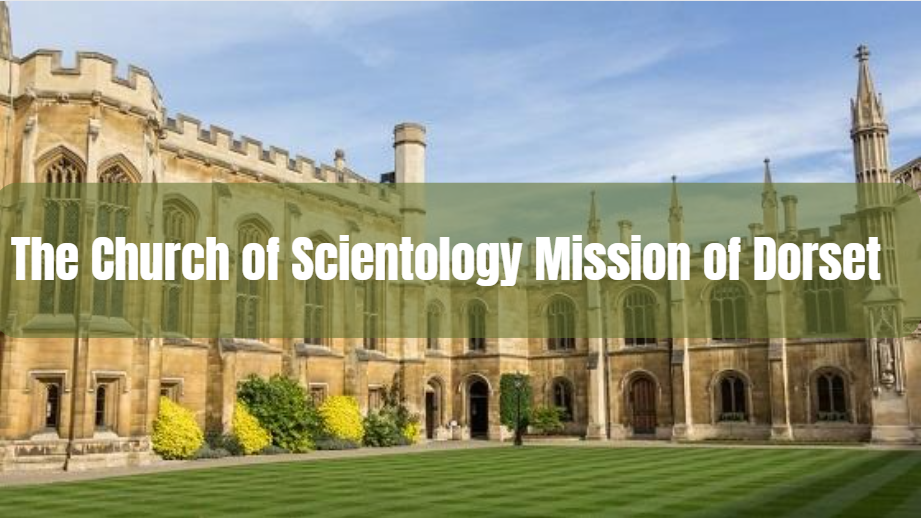





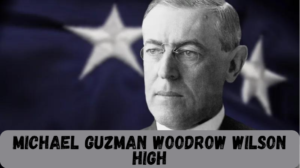








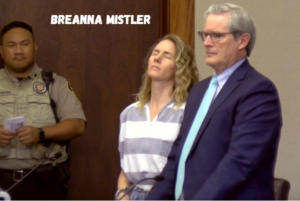
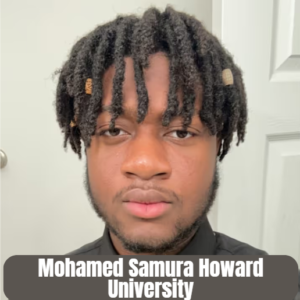
































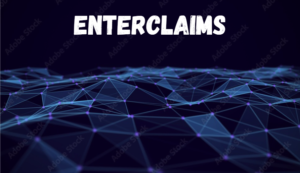

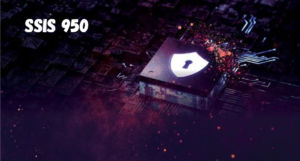
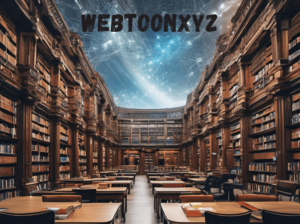

Post Comment